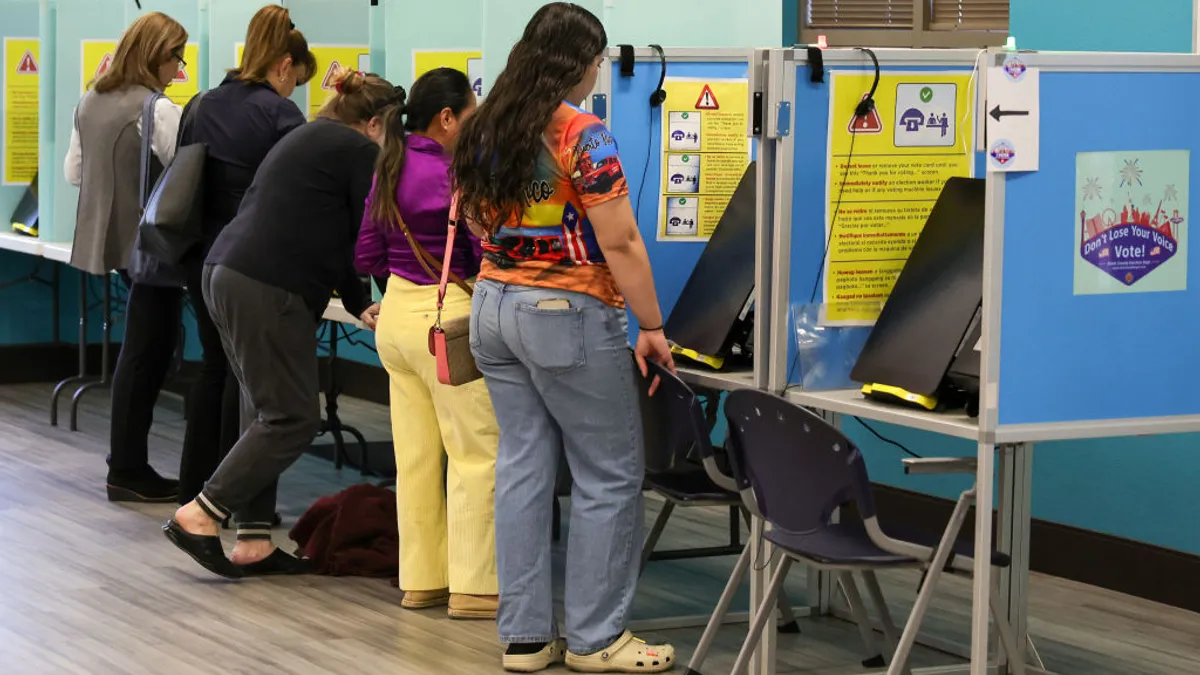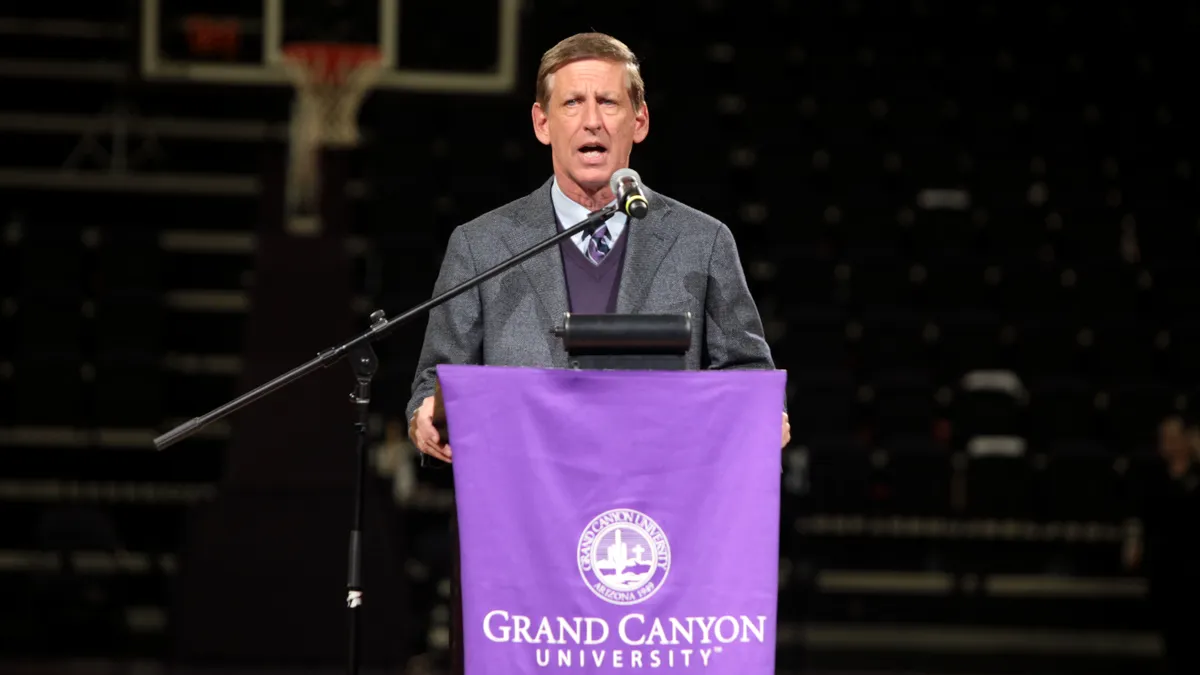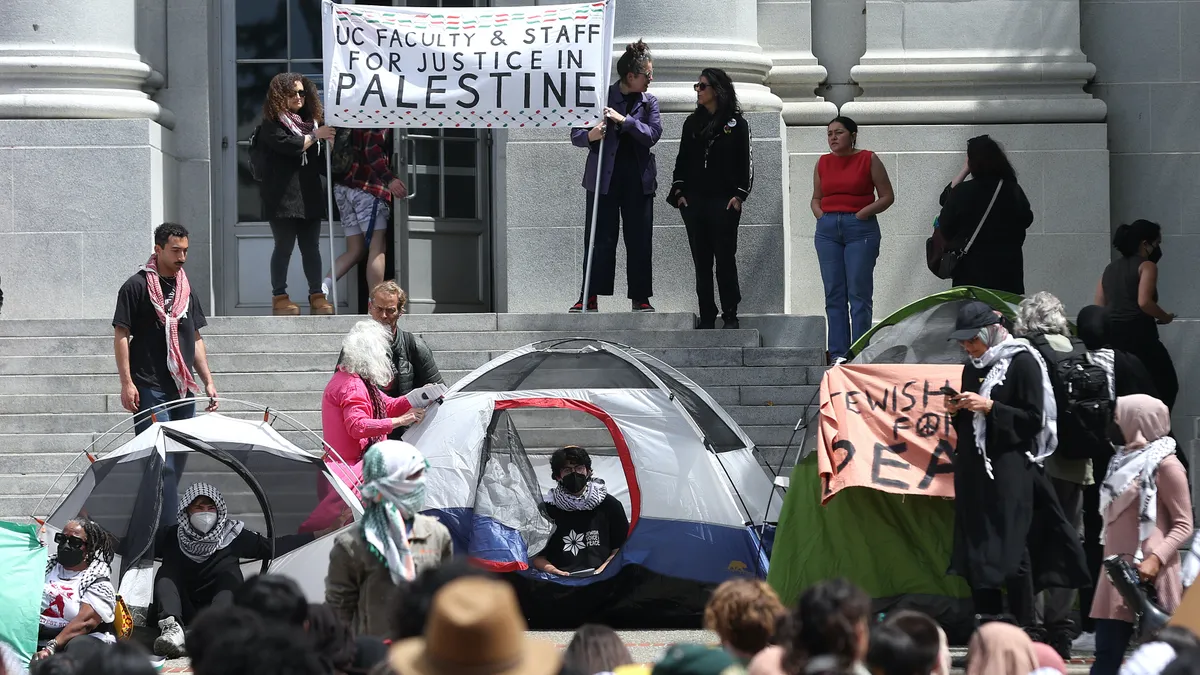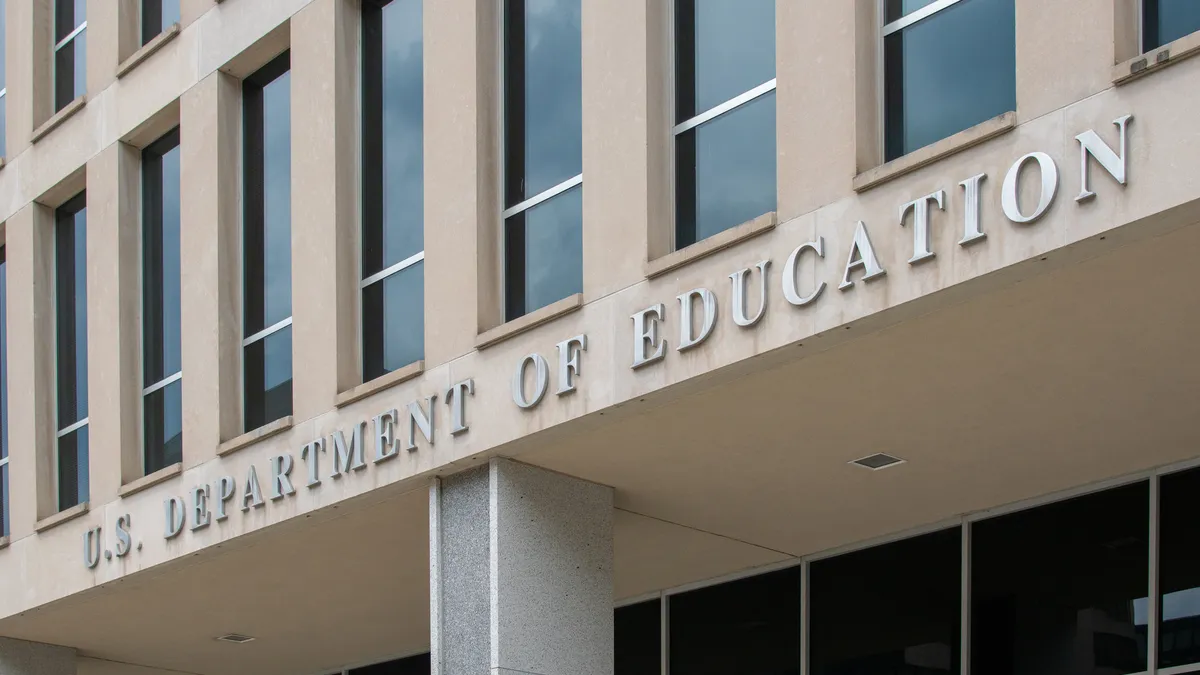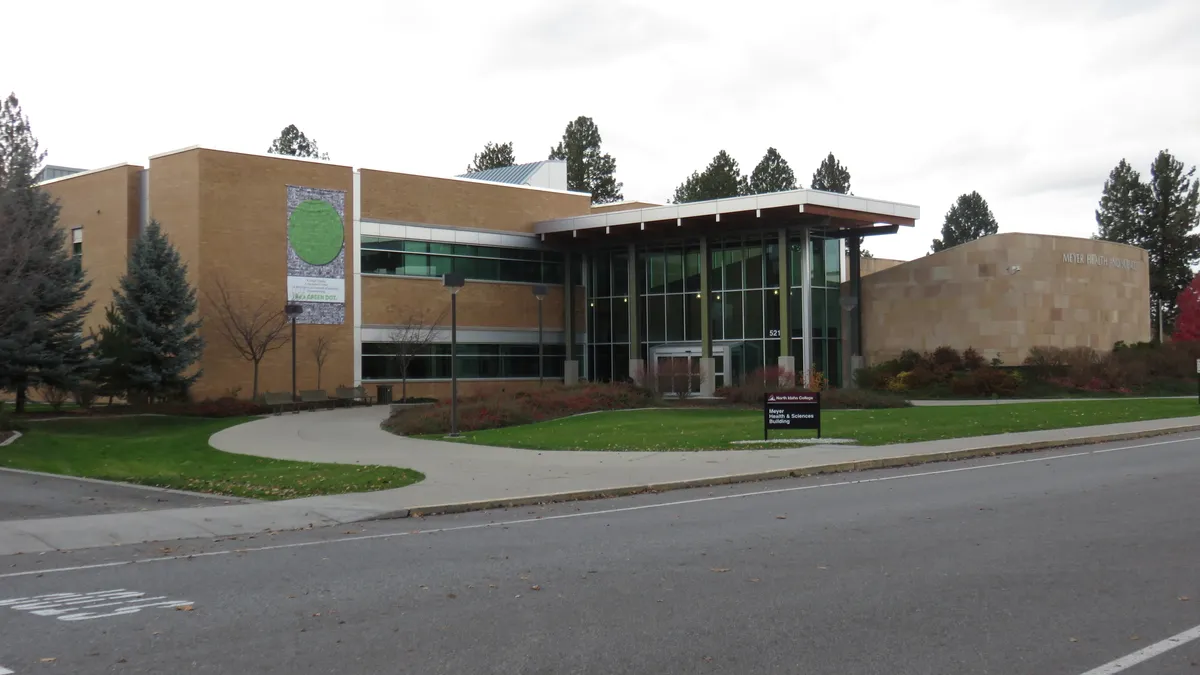Ordered by a court to account for millions of dollars in unpaid student loan stipends, the man in charge of Dream Center Education Holdings' (DCEH) assets said in court filings Tuesday that the money to pay students essentially doesn't exist — at least not yet.
Mark Dottore, the court-appointed receiver handling DCEH's estate, explained in a report to a federal district court in Ohio that DCEH's Argosy University, specifically, owes students $13 million in stipends and must pay up-front under the U.S. Department of Education's Heightened Cash Monitoring 2 (HCM2) regulations. However, DCEH "never had the money," he wrote. Because HCM2 requires institutions to pay out student stipends and get reimbursed from the department, DCEH, short on funds, couldn't make the payments.
"To be clear: the money to pay the Student Stipends is not missing," Dottore wrote. "To put it bluntly, the payment of the Student Stipends is stalled over a 'chicken and egg' debate." He added that "hopes for a breakthrough have dimmed," and he is trying to find a "workaround" with the Ed Department that would entail the agency advancing DCEH federal aid funds it could release to students.
As Dottore, the Ed Department and other stakeholders try to sort out the money trail, they have been "fielding hundreds of calls a day" from students facing eviction, repossession and unpaid bills, according to Dottore. Beyond the unpaid stipends, students in DCEH's remaining Art Institute, South University and Argosy University programs have been waiting for more information about the future of their schools and programs.
'We still don't know'
Dottore's statements follow news reports that Argosy students were waiting on millions in federal aid refunds. Acting on those reports, a group of Art Institute students in Illinois, who last year filed a class action lawsuit against DCEH and recently joined the receivership case, requested a court hearing around the missing stipends. That ultimately led the court to order a status report on the stipends.
"We read this report to be describing, at most, what has happened since Argosy was placed in receivership, but not before," said Eric Rothschild, senior counsel with the National Student Legal Defense Network, which is representing the Illinois students, of Dottore's latest filing. "We still don't know — did the (Ed) Department ever send the money to Dream Center or not? We will continue to press for answers."
Complicating the picture is a Feb. 7 letter Dottore sent to Diane Auer Jones, a top higher ed official with the Ed Department. The letter outlined the organization's "dire" cash shortage and implied that some of the funds had been skimmed as a result of a January deal brokered at the department's behest to spin off some of the schools.
In that letter, Dottore noted that nearly $51 million was advanced between Jan. 1 and Feb. 4 to DCEH-owned entities. But by the time Dottore took over the accounts and made a payroll payment of $5.2 million on Feb. 1, he wrote, only $3.8 million was left.
Additionally, Dottore wrote, DCEH funds were depleted partly through fees paid out to a for-profit firm, Studio Enterprises, that had a services agreement with DCEH. That was part of a deal to spin off eight Art Institutes previously owned by DCEH and put them under control of another nonprofit, Education Principle Foundation (EPF). According to Dottore, DCEH paid money to Studio for services it never provided and was owed millions from Studio for DCEH services to the spun-off schools.
Dottore also wrote that he believed there was "scattered matching of revenue and expenses" among all schools — Argosy, Art Institutes and South University — ahead of the receivership. As an example, he cited a $9 million payroll bill owed by DCEH that received no allocation from Title IV draws, creating, in his words, "windfalls" for the schools DCEH had separated.
Dottore didn't follow up or elaborate on these statements in his report to the court on Tuesday. His firm did not reply to requests for comment.
Ed Department spokeswoman Liz Hill said in a statement emailed Friday that the agency would forgive loans made to students this semester and help those who wanted to enroll at another institution to finish their programs. "The Department is deeply concerned that the receiver and the institution are currently unable to fully account for the funds disbursed by the Department to pay student account balances," Hill said.
In a follow-up statement emailed Tuesday, Hill said the department "is not in a position to confirm the Receiver's (Dottore's) contentions." She added, "We are waiting for the Receiver to provide detailed student roster information so that the Department can determine whether funds that have previously been released by the Department included some or all of the unpaid stipends."
Last week, two Democratic lawmakers raised questions about the department's role in the situation. In a Feb. 15 letter to the Ed Department's Acting Inspector General Sandra Bruce, Sen. Dick Durbin (D-Illinois) and Rep. Rosa DeLauro (D-Connecticut) asked the office to investigate the unpaid stipends as well as the department's role in the deal with EPF and Studio, among other issues.
For its part, Studio — an affiliate of Colbeck Capital that reportedly has ties to EPF through Colbeck — has moved to join the receivership case, saying it has secured interests in DCEH properties under its deal with the organization. Attorneys for the firm explained the deal was meant to ensure financial stability and protect students, and it gave the spun-off schools, through Studio, access to systems and licenses.
'Bypassing' bankruptcy
On Jan. 18, the day EPF announced its acquisition of eight Art Institutes and six South University campuses from DCEH, a relatively small creditor of DCEH asked a federal court to put the organization in receivership to protect the organization's assets from deterioration and insolvency.
The court granted the receivership, which followed a mounting financial disaster that began almost as soon as DCEH, owned by the faith-based Dream Center Foundation, acquired the Art Institutes and other college assets of for-profit college operator Education Management Corporation shortly before the company filed for bankruptcy.
Like bankruptcy, receivership gives DCEH legal protection from creditors. But it doesn't block the organization's access to Title IV funds, as Chapter 11 protection would. As court-appointed receiver, Dottore has taken over operations and finances for DCEH and has looked for buyers for its remaining schools. On Friday, a California landlord who is owed nearly half a million dollars by DCEH moved to end the receivership, arguing it was never legally valid.
The landlord, 3601 Sunflower LLC, said in court papers that DCEH coordinated with the creditor suing for receivership and "improperly" convinced the court to appoint a receiver.
"For the purposes of shielding themselves from pending and future lawsuits, preserving their own assets in an attempt to better their own deteriorating economic outlook, and to bypass the Bankruptcy Code, Defendants have dramatically reengineered a breach of contract action by one trade creditor into a nationwide federal receivership action that has paralyzed the leases of landlords ... at campus locations in numerous states across the country," attorneys for Sunflower said.
A ruling in Sunflower's favor could tip DCEH into insolvency or force it to close campuses if evicted by unpaid landlords. Meanwhile, students and faculty at DCEH's remaining campuses are trying to make sense of the chaos and evaluate their options amid uncertainty over the future of their schools. Dottore has said there are interested potential buyers for Argosy and the Art Institutes of Pittsburgh, Seattle and Las Vegas.
Meanwhile, some of the organization's remaining schools face accreditor actions. Among them, Argosy and the Art Institute of Pittsburgh face actions from their accreditors ordering them to show cause to keep their accreditation.
A previous version of this article misstated when Education Management Corp. filed for bankruptcy relative to its transaction with Dream Center.








